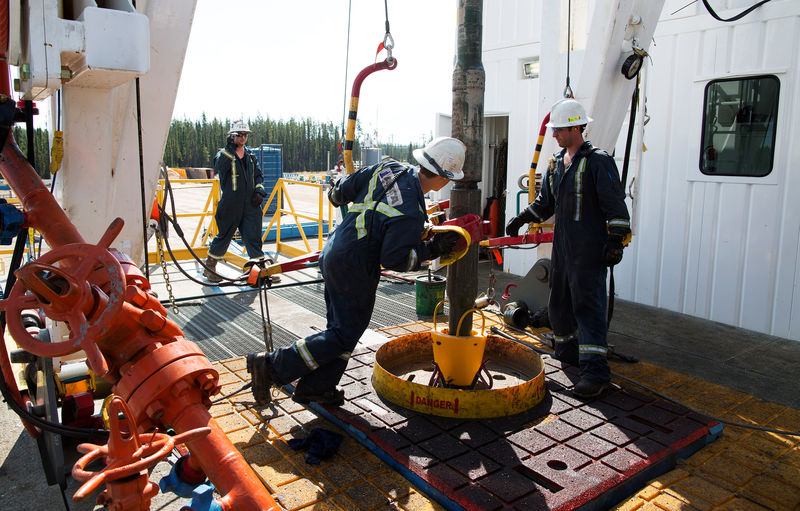Two 59%+ winners, four above 25% in Aug – How this AI model keeps picking winners
(Bloomberg) -- An armada of Saudi tankers brimming with crude heading to American shores is raising concern over storage space just as a U.S. glut shows signs of easing.
Over 30 tankers laden with Saudi Arabian oil are set to arrive in the U.S. Gulf Coast and West Coast during May and June, according to ship tracking data compiled by Bloomberg. The more-than 50 million barrels of Saudi crude on the water threaten to disrupt a positive supply development: U.S. crude stockpiles declined for the first time since January and inventories at the Cushing, Oklahoma storage hub contracted by the most in months.
“The expected Saudi deliveries could push U.S. inventories back to builds depending on their timing,” said Sandy Fielden, director of oil and products research at Morningstar Inc. “If the shipments land at a rate that isn’t balanced by falling production or an uptick in exports, then we’ll see a domestic build.”
The oil industry has been on edge for months with onshore and offshore storage capacity levels tested worldwide due to ballooning oil inventories spurred by the Covid-19 demand slowdown. On the U.S. West Coast, crude stockpiles are less than 5 million barrels short of reaching the region’s storage capacity.
Data from the Energy Information Administration this week showed U.S. crude production dropped for a sixth straight week to the lowest in nearly a year. But even though output is steadily declining, there are still volumes being produced that may have to jostle with Saudi deliveries for storage space.
“If all the Saudi tankers unload, the crude they carry will offset during May almost all of the production reductions from March levels, effectively maintaining the current high storage filling rates,” Paola Rodriguez-Masiu, a senior oil market analyst at Rystad Energy, said in a note.
Very Large Crude Carries, or VLCCs, headed for the U.S. Gulf include Shaybah, Hong Kong Spirit and Dalma, ship tracking data show. Tankers en route to the Pacific Coast include Sea (NYSE:SE) Jade and Sikinos I. The vessels, mainly supertankers, will deliver over 45 million barrels of Arabian crude to Gulf buyers and at least 7 million to Pacific users. The volume of oil arriving in May and June is equal to nearly a third of all Saudi crude delivered to the U.S. last year.
West Coast crude stockpiles are currently at 58.2 million barrels. The inventory picture is brighter on the U.S. Gulf Coast, America’s refining belt. Crude inventories there are 88 million barrels shy of reaching total storage capacity.
Still, the market is witnessing delays in discharging Saudi oil. For some ships, it has taken about two weeks to unload cargoes, about twice the usual time to finish the job as small ships that are needed to unload have become increasingly scarce.
Oil imports from Saudi Arabia are not set to slow down anytime soon even as the kingdom deepens its production cuts and raises prices for June supply. Plus, a true demand recovery worldwide isn’t expected for at least another year.
©2020 Bloomberg L.P.
